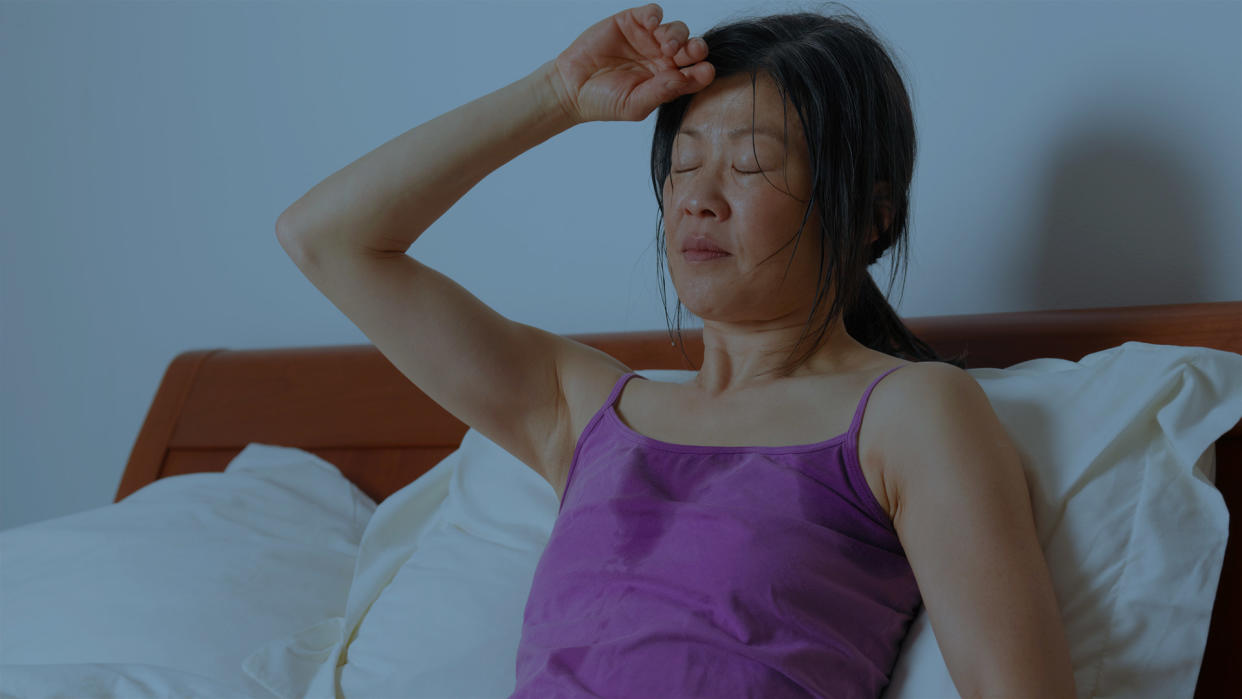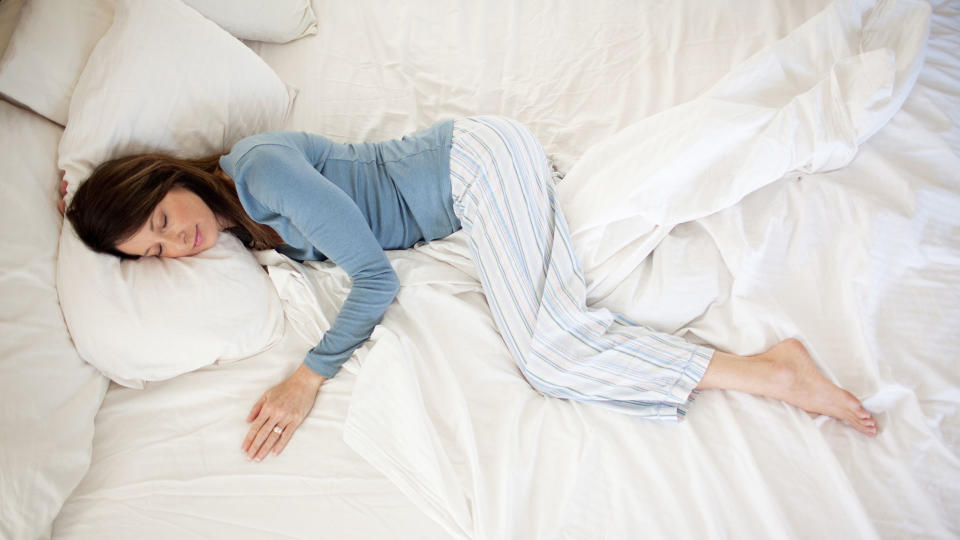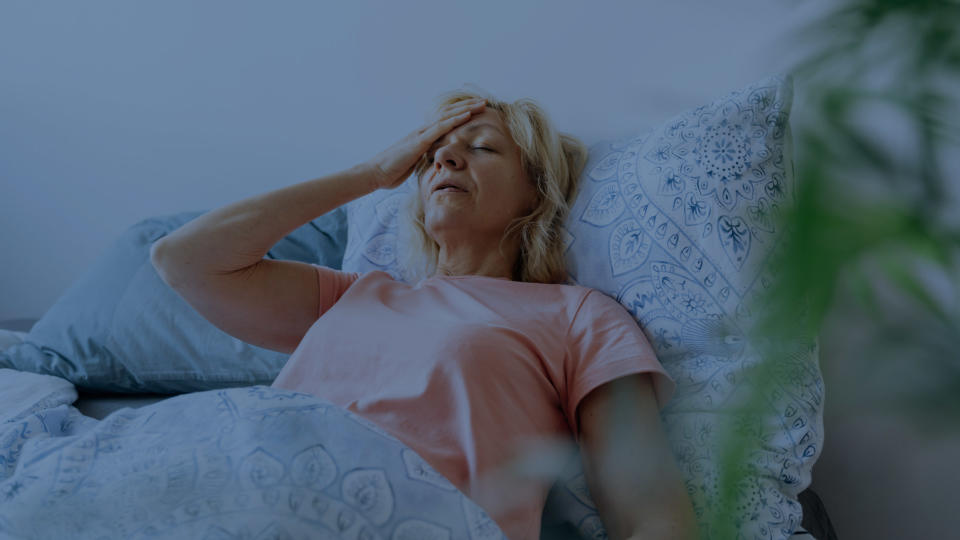What are night sweats and should you be concerned about them?

We all sweat, and sweating is a core part of how our bodies regulate temperature. So, whilst it’s not the most glamorous of subjects, sweating is important. Our body temperature is part of our circadian rhythms and normally follows a daily cycle that correlates with our sleep-wake pattern. But if you’re sweating excessively at night and soaking your bedsheets and nightwear, you are suffering with night sweats, and these can be highly unpleasant.
As with all sleep issues, things can be exacerbated if you’re not sleeping in a restful environment, so take a look at our best mattress and best pillow guides if you need to update your bedroom.
What are night sweats?
Night sweats are when you sweat in excess of what’s required to regulate body temperature. The NHS defines night sweats as when you ‘sweat so much that your night clothes and bedding are soaking wet, even though where you’re sleeping is cool. This is known as a drenching sweat. Night sweats can be slightly less dramatic as well, but can happen for a number of reasons. Like many sleep conditions, night sweats can have a negative effect on your sleep and general wellbeing, so it’s important to try and deal with them.
Temperature regulation and thermoregulatory mechanisms
To understand night sweats, it helps to understand a little more about the human body’s temperature regulation. The human body needs to be kept at a temperature of around 37C or its biochemical and physiological processes cannot function correctly.
“The body has a series of sophisticated mechanisms known as thermoregulatory mechanisms for controlling body temperature”, explains Dr Deborah Lee, a medical and healthcare content writer for Dr Fox Online Pharmacy. “If the hypothalamus in the brain senses the body temperature is too high, mechanisms are automatically put into operation to cool the body down. They include sweating, panting, blood vessel dilatation and we naturally seek shade.
"Alternatively, if the body temperature is too low, reverse mechanisms are brought into play to warm the body up. Sweating ceases, blood vessels are constricted to conserve heat, there is no change in the rate of breathing, and we naturally search for warmth.”
What causes night sweats?

With the complexity of the body’s temperature regulation system, it can be difficult to tell what’s causing night sweats. Many causes are relatively harmless, but night sweats can be linked to more serious conditions. Dr Lee explains the most common causes below:
Infections – Such as TB, HIV infection, subacute bacterial endocarditis (SBE) or lung abscess.
Stress and anxiety – These symptoms are very common and are often linked to insomnia.
Gastric reflux - When you lie flat at night, stomach acids travelling up the oesophagus (throat) cause a burning feeling in the chest, and you wake up sweating.
Medication – Examples include antidepressants, steroids and aspirin.
Sleep apnoea - The sufferer may wake up sweating and be unaware of their snoring/sleep-disordered breathing. However, their bed partner will know all about it!
Menopause – Around 80% of perimenopausal women experience hot flushes in the daytime and often night sweats at night. It is thought that sudden fluctuations in levels of FSH and oestrogen trigger these symptoms. Hot flushes and night sweats are most common in the 5 years or so before menopause. However, it should be remembered that 5% of women have hot flushes and night sweats for life.
Diabetes – Low blood glucose levels (hypoglycaemia) at night can result in sweating. This is serious and must be discussed immediately with the diabetic team or GP.
Hyperthyroidism (an overactive thyroid) – Excess thyroxine causes tachycardia – a rapid heart rate – and raises blood pressure, both of which cause sweating.
Autoimmune diseases – Lupus (SLE), for example, often causes hyperhidrosis – severe sweating – thought to be because lupus is associated with raised levels of nitric oxide (NO), a powerful vasodilator.
Cancers – Such as leukaemia and lymphoma, but also cancers of the kidney, liver and ovary.
Drugs – Cocaine, for example, causes a hypermetabolic state and at the same time damages the thermoregulatory mechanisms, resulting in the body overheating.
Alcohol – Alcohol directly affects thermoregulation, causes dilation of peripheral blood vessels.
When should you be concerned about night sweats?

“It’s very common to sweat at night,” explains Dr Lee, “often for the simple reason that the bedroom or duvet are too warm, and your body has become overheated. In one study from UK General Practice, 41% of adults said they had suffered from night sweats recently. Night sweats were most common in men and women between the ages of 41 to 55 years. Most people who sweat at night do not have a serious underlying cause and can improve the situation by taking some simple steps.
But if you are persistently waking up sweating at night over a period of 2 or 3 weeks, see your GP. This is especially important if these are drenching sweats, meaning you are soaking wet and need to get up, shower and change the bed linen. Also, if you have any additional symptoms such as unintended weight loss or fatigue.”
Does alcohol cause night sweats?
Studies show that alcohol can cause a number of sleep disorders, with night sweats being one of them. Alcohol stimulates the cardiovascular system, causes dilation of peripheral bloods vessels and studies also show that it directly affects thermoregulation. Alcohol withdrawal and alcohol intolerance can also cause night sweating.
How can you prevent night sweats?
Dr Lee suggests these practical tips to help with night sweats:
Take a cool shower or bath before getting into bed.
Keep your bedroom cool – sleep with the window open even in the Winter and use a fan.
Cool yourself down in the night by running cold water over the pressure points at your wrists and splashing your face with cool water.
Use light cotton bedding, and wear cotton nightwear – not synthetic fibres.
Avoid spicy foods at your evening meal, and don’t eat within 3 hours of bedtime.
Don’t drink alcohol and/or caffeine within 6 hours of bedtime.
Smoking is also a trigger for night sweats. The NHS stop smoking service has lots of advice and help.
Keep well hydrated during the day. Your body needs to be well hydrated to be able to sweat and cool your core temperature, so it doesn’t help if you are fluid depleted.
Place a cool, damp flannel over your forehead.
Drink some cool water if you wake up at night.
Try resting your head on a cold gel pillow.
How to stop night sweats ruining your mattress
Over time sweat can ruin a mattress, as well as leave it with unsightly stains. One of our recommended cooling mattresses will do the ultimate job at helping with temperature regulation overnight, but this is obviously a large expense.
If you’re not ready to replace your mattress, make sure it’s protected with a washable mattress protector and clean it regularly.

